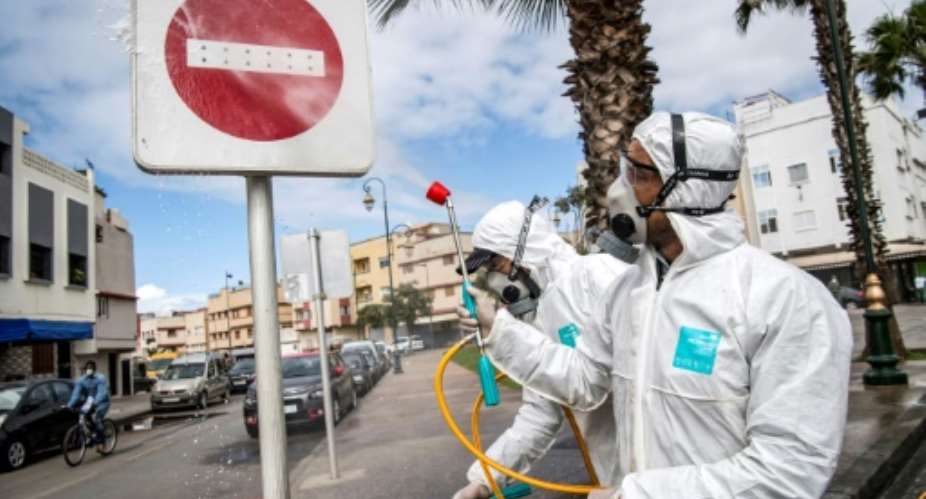Morocco has authorised hospitals to use antimalarial drugs in treating the new coronavirus, according to a document seen by AFP, as scientists urge caution over encouraging results from small trials.
The Moroccan health ministry on Monday gave hospitals and regional health directors the green light to start using hydroxychloroquine and related compound chloroquine "in the care of confirmed COVID-19 cases".
In a message seen by AFP, it said that "efforts have been made to ensure the availability of these medicines", urging caution in how the stocks are managed.
Rabat last week ordered the Moroccan branch of French drug maker Sanofi to hand over its entire stock of Nivaquine and Plaquenil, both of which contain chloroquine.
Studies in France and China have found that the drug helped patients suffering from the COVID-19 illness, and France on Monday ordered its use in severe cases.
US President Donald Trump on Monday said chloroquine could be a "gift from God".
He has been criticised by scientists for overhyping the drug, and on Monday the World Health Organization urged caution over its use.
NBC later reported that a woman in Arizona who heard Trump talk about chloroquine ended up in hospital and her husband died after they took a form of chloroquine she had used to treat her koi fish.
Authorities in Nigeria said hospitals had seen cases of chloroquine poisoning after Trump's comments.
Experts have urged the public to remain cautious until larger clinical trials validate the smaller studies.
In its note, Morocco's health ministry said it took its decision after consulting with a scientific committee which recommended prescribing chloroquine along with another drug called azithromycine.
Morocco's transport minister, Abdelkader Amara, who tested positive for the new coronavirus on March 14, has already said he was taking Nivaquine.
"My health is stable. I have no fever or respiratory symptoms. The headaches are almost gone. I just feel a little tired," he told private radio station Medi 1.
Morocco has recorded 143 cases of the COVID-19 illness, with four dead. The country has three screening centres and 1,642 intensive care beds for 35 million inhabitants.





 Lay KPMG audit report on SML-GRA contract before Parliament – Isaac Adongo tells...
Lay KPMG audit report on SML-GRA contract before Parliament – Isaac Adongo tells...
 Supervisor remanded for stabbing businessman with broken bottle and screwdriver
Supervisor remanded for stabbing businessman with broken bottle and screwdriver
 NDC watching EC and NPP closely on Returning Officer recruitment — Omane Boamah
NDC watching EC and NPP closely on Returning Officer recruitment — Omane Boamah
 Your decision to contest for president again is pathetic – Annoh-Dompreh blasts ...
Your decision to contest for president again is pathetic – Annoh-Dompreh blasts ...
 Election 2024: Security agencies ready to keep peace and secure the country — IG...
Election 2024: Security agencies ready to keep peace and secure the country — IG...
 People no longer place value in public basic schools; new uniforms, painting wil...
People no longer place value in public basic schools; new uniforms, painting wil...
 'Comedian' Paul Adom Otchere needs help – Sulemana Braimah
'Comedian' Paul Adom Otchere needs help – Sulemana Braimah
 Ejisu by-election: Only 33% of voters can be swayed by inducement — Global InfoA...
Ejisu by-election: Only 33% of voters can be swayed by inducement — Global InfoA...
 Minority will expose the beneficial owners of SML, recover funds paid to company...
Minority will expose the beneficial owners of SML, recover funds paid to company...
 Prof. Opoku-Agyemang has ‘decapitated’ the NPP’s strategies; don’t take them ser...
Prof. Opoku-Agyemang has ‘decapitated’ the NPP’s strategies; don’t take them ser...
